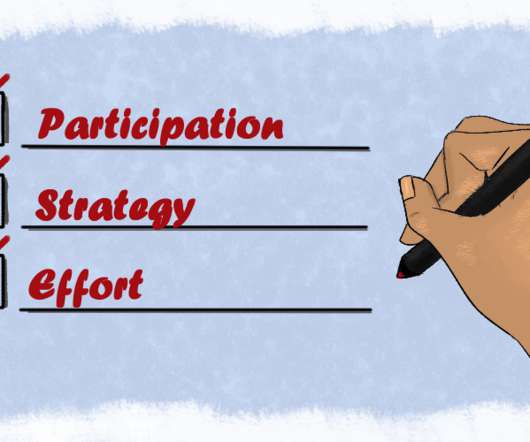Strengthening program evaluation in your nonprofit
ASU Lodestar Center
OCTOBER 16, 2020
ECB involves a series of steps taken by an evaluator (internal or external) to build evaluative knowledge and skills, create a culture of continuous learning and accountability, and make resources readily available. Some things to consider include: What resources (technology, space, materials, time, finances, etc.) are available?











Let's personalize your content